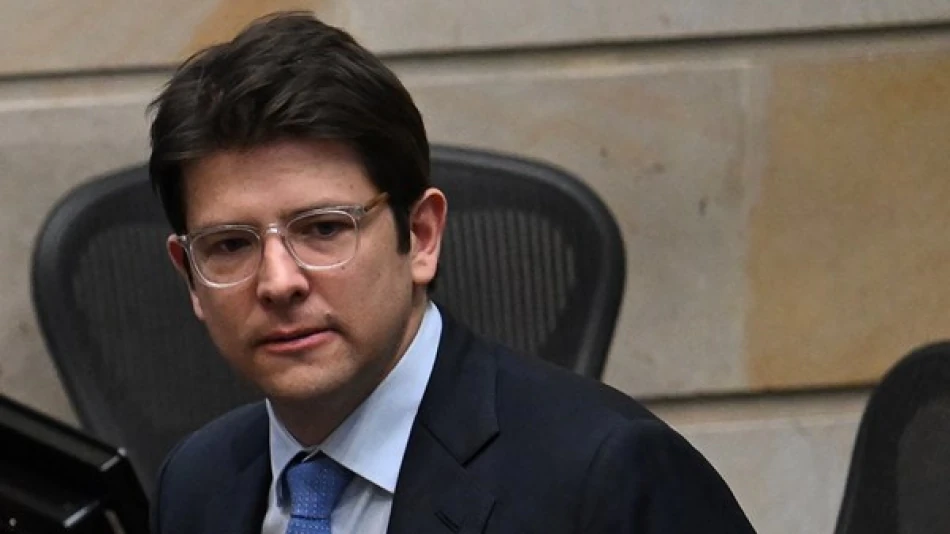
Colombian Presidential Hopeful Tragically Succumbs to Shooting Injuries after 2-Month Ordeal
Colombian Conservative Senator Dies After Two-Month Battle Following Campaign Rally Shooting
Miguel Uribe Turbay, a prominent Colombian conservative senator and presidential hopeful, died Monday after suffering brain hemorrhaging, more than two months after being shot in the head during a campaign rally in Bogotá. His death underscores the persistent violence that has plagued Colombian politics for decades, raising fresh concerns about candidate security ahead of next year's presidential elections.
A Political Life Cut Short by Violence
Uribe Turbay's wife, María Claudia Tarazón, confirmed his death Monday morning after he succumbed to complications from the June 7 assassination attempt. The 15-year-old suspected gunman and several accomplices were arrested following the attack at a Democratic Center Party rally in western Bogotá, though investigators have yet to fully uncover the motive behind the shooting.
The conservative politician had undergone multiple surgeries and remained in intensive care at Bogotá's Santa Fe Hospital since the attack, which left him with gunshot wounds to both his head and leg. Despite medical efforts, he developed fatal brain bleeding in his final days.
Colombia's Enduring Political Violence Problem
Uribe Turbay's assassination highlights a troubling reality in Colombian politics, where violence against political figures remains commonplace despite the 2016 peace agreement with FARC rebels. The country has witnessed hundreds of social leaders and former combatants killed since the accord, creating a climate of fear that extends to mainstream political candidates.
Prosecutors believe the attack was orchestrated by a leader of hired assassins with alleged ties to dissident groups from leftist extremist organizations—a pattern that reflects Colombia's fragmented security landscape where criminal networks often intersect with political violence.
Impact on Colombia's Political Landscape
The Democratic Center Party, founded by former President Álvaro Uribe, declared the nation "in mourning" following the senator's death. Uribe Turbay had been actively campaigning for the party's presidential nomination for next year's elections, representing the conservative wing's hopes to regain power after current leftist President Gustavo Petro's victory in 2022.
His death creates both a symbolic loss and a practical vacuum within conservative ranks. The party now faces the challenge of maintaining momentum while addressing security concerns that could deter other candidates from aggressive campaigning—particularly in areas where state presence remains weak and armed groups operate with impunity.
Security Implications for Future Elections
This assassination attempt—and its fatal conclusion—will likely force Colombian authorities to dramatically increase protection for presidential candidates. The incident occurred in the capital city, not in remote rural areas where violence is more common, suggesting that even high-profile politicians in major urban centers face significant risks.
For international observers, Uribe Turbay's death serves as a stark reminder that Colombia's democratic institutions remain vulnerable to violent disruption, despite decades of efforts to strengthen the rule of law. The case will test whether prosecutors can successfully dismantle the criminal networks behind political violence or whether such attacks will continue to shape electoral dynamics through intimidation and elimination of candidates.
Most Viewed News

 Layla Al Mansoori
Layla Al Mansoori






